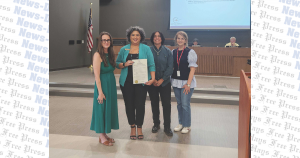Much has been said lately about the safety of women and girls in public restrooms. We would like to set the record straight about the risk to women and girls. We know that when women and girls are sexually assaulted, it’s most likely to be perpetrated by someone they already know and not a random stranger. According to national and state statistics, 90% of sexual assaults are committed by a known perpetrator such as husbands, dates, fathers, coaches, youth leaders, religious leaders, doctors and the list goes on. Locally, that statistic is even higher. Last year, HCWC served 468 adult sexual assault victims and 397 child abuse victims (the vast majority identified as child sexual abuse). Less than 1% of the alleged perpetrators were strangers meaning that close to 99% had some type of known relationship to their victims.
Women and girls are not the only ones who need our protection in public restrooms or otherwise. Men and boys are also at risk for sexual assault victimization. 1 in 6 boys will be sexually assaulted in their lifetime according to research. They also deserve our attention and protection.
You see, this most violent and traumatic crime occurs under the guise of secrecy and it’s accompanied by a society full of victim blaming. It isn’t uncommon for victims to face judgement and accusations regarding their behavior, their attire, their activities, etc. And sexual predators thrive on that victim blaming. They count on it. They rely on the fact that as a society, we perpetuate the wrong idea of a sexual perpetrator. We make it about strangers hidden behind bushes, in bathrooms, in dark alleys so when this crime doesn’t fit this idea we feel most comfortable with, we make assumptions that victims must be lying. Or worse yet, that somehow they asked for it and deserved what happened to them.
The good news is that if you truly seek to protect victims, you can make a difference by learning more about this issue and becoming an advocate for change. HCWC offers education, 24-hour shelter, counseling, legal and personal advocacy, 24-hour hospital response, a children’s advocacy center (Roxanne’s House) and other services. Our 24 hour HELPline is 512-396-HELP(4357). All services are free and confidential.
We would like to invite your readers to find out more about HCWC services and learn ways to get involved by visiting our website at www.hcwc.org or by calling (512)396-3404. Sources of research referenced in this letter can be viewed on our website.
Thank you for your attention,
Melissa G. Rodriguez
HCWC Director of Community Partnerships






